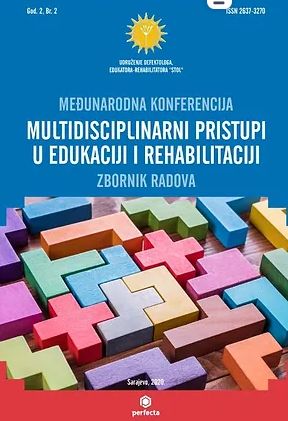PROCJENA ADAPTIVNOG PONAŠANJA
ASSESMENT OF ADAPTIVE BEHAVIOR
Author(s): Slađana Ćalasan, Nadica Jovanović-SimićSubject(s): Psychology, Inclusive Education / Inclusion
Published by: Udruženje defektologa, edukatora-rehabilitatora (STOL)
Keywords: adaptive behavior; adaptive skills; assessment of adaptive behavior;
Summary/Abstract: Understanding the construct of adaptive behavior and its evaluation is crucial for researchers and clinicians to successfully diagnose intellectual disability (ID), formulategoals and frameworks for education and rehabilitation, and focus on the essentialdimension of human functioning. Since the first standardized instrument for measuring adaptive behavior (1968) until today, over 200 different scales have been developed. However, just few of them completely met the following criteria: that they werebased on a three-factor structure of adaptive behavior (conceptual, social and practical skills), standardized on a representative sample of the tipical population, constructed specifically for the purpose of setting or excluding the diagnosis of ID andhaving good psychometric characteristics. Modern Adaptive Behavior AssessmentScales usually cover a wide range of respondents’ years, typically have alternativeinformant forms (parents and teachers), have been standardized on large samples ofrespondents recently, and there is evidence of their reliability and validity. Bearing inmind that adaptive behavior is what measures the scales for its assessment and thatit is probably the only definition that is generally agreed by all researchers, the aim ofthis paper is to provide insight into contemporary knowledge of adaptive behaviorassessment based on a review and analysis of available literature.
Journal: Multidisciplinarni Pristupi u Edukaciji i Rehabilitaciji
- Issue Year: 2/2020
- Issue No: 2
- Page Range: 23-33
- Page Count: 11
- Language: Bosnian, Croatian, Serbian

